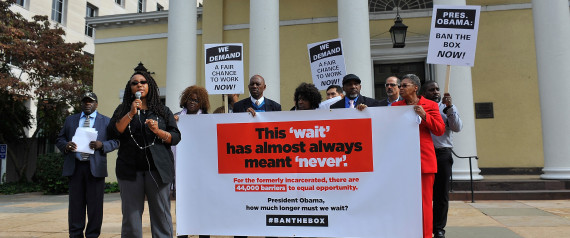
President Obama recently announced the introduction of a "Ban the Box" policy for federal employers. Like similar measures adopted in some states, this policy will prevent employers from asking applicants about their criminal histories at the outset of the application process (although they can still ask such questions before finalizing a hiring decision).
Such steps are hailed as major advances for the rights of people with past criminal convictions, and they illustrate a critical aspect of the criminal law -- the fact that the actual sentence imposed by the judge may end up being the least of the convicted person's concerns.
When we think about the consequences of a criminal conviction, we tend to think about the formal sentence. A sentencing judge can, for example, send the defendant to jail or prison, or impose a fine or probationary term.
But that's far from the end of the story. Most criminal convictions also result in a series of additional consequences independent of the sentence itself. These "collateral" consequences have been getting increased attention in recent years.
Some collateral consequences are imposed directly, by law, against broad classes of defendants. For example, just about anyone convicted of a felony is forbidden from possessing a firearm. Also, in some jurisdictions, persons with certain convictions on their records can be barred from voting or serving on juries.
Other collateral consequences are more specialized and apply only to certain groups of people. Immigration is a common example -- a non-citizen legally present in the United States may face deportation after a conviction. (This occurs in the other direction as well; U.S. citizens with American convictions, for example, may face obstacles traveling into other countries.) A conviction can also interfere with an application for a legal, medical or other professional license. The availability of certain federal benefits can also be affected; for example, drug convictions can affect eligibility for federal student aid.
In all, a huge number of potential consequences can arise out of a conviction (especially for a felony). The National Association of Criminal Defense Lawyers recently published a book on this topic. Because of the complexity of this issue and the difficulty of predicting which legal provisions might affect a particular client, I've started offering this book to some of my clients considering plea resolutions, to give them a better picture of what they might end up facing.
But some of the most crippling consequences won't necessarily show up in any legal compilation, because they're based not on legal provisions but on individual private actors' preferences and decisions. For example, a private employer may not want to hire, or a renter may not want to lease an apartment to, someone with a criminal conviction.
With few exceptions, private actors are generally allowed to act on such views, which can make life quite difficult for someone with any criminal history. It's all the more challenging because, with these particular consequences not being grounded in any written laws, it's hard to predict which ones might affect a given client in the future. If I'm advising a client as to whether to accept a resolution involving a plea to some offense, I can tell the client how that plea might affect voting rights or student loan eligibility, but it's much harder to predict how an as-yet-unknown future employer or renter might react to the conviction.
Fortunately for those with criminal convictions in their backgrounds, many jurisdictions offer paths towards removing at least some of these consequences over time. Some states allow conviction records, at least for certain classes of offenses, to be "expunged" or "sealed" after some period following the conviction, provided that the convicted person hasn't had any additional legal issues in the interim. Often, when a conviction is expunged, at least some of the formal legal disabilities described above go away. Additionally, some expunction statutes expressly allow the beneficiaries to say "no" if asked in the future if they have past convictions or charges. (Some employers and others attempt to get around this by specifically including "whether or not such conviction has been expunged" in their questions, which raises interesting issues.)
There is at present no general expungement framework for federal offenses, but federal legislators are giving the topic some consideration. And, of course, the wave of "ban the box" measures is another step in the direction of mitigating collateral consequences.
The significance of such measures for convicted persons attempting their transitions back into society can hardly be overstated. Again, the imposing array of "collateral" consequences will often end up being more practically significant than the actual sentence. I remember one former client of mine, a young college student charged with a felony drug delivery offense. The prosecutor in the case made two simultaneous plea offers. He could plead to a "non-expungeable" offense -- one that would be on his record, with all of the associated consequences, forever -- and almost certainly avoid any jail time. Or, he could plead to an expungeable offense -- one that could be cleared from his record after a few years -- and spend six months in jail. He chose the latter option, and I understood his choice. Especially for a young person with a lifetime of job applications and other gateways ahead of him, the opportunity to clear up his record and minimize collateral consequences was critical.
I'm strongly in favor of measures to assist people with less-than-perfect legal histories. As I've written before, although I absolutely recognize the seriousness of criminal behavior and the need to prevent, deter and punish it, I don't believe there's a clear dividing line between the "good," law-abiding people whom we can trust to be productive members of our society and the "bad" ones with criminal convictions on their records. We're a nation of deeply flawed people. If we can provide an invaluable helping hand to those whose particular flaws have resulted in criminal records, without compromising safety or other legitimate goals, we should do so.


